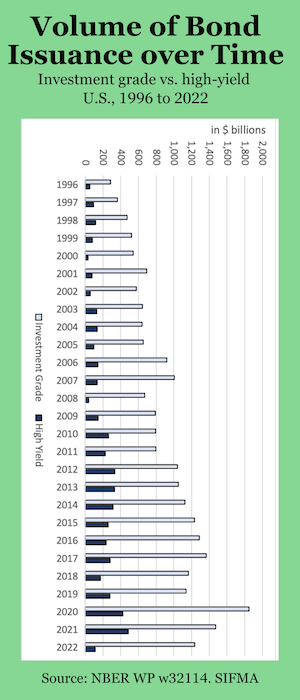Cetera picks Broadridge as mobile platform provider
Cetera Financial Institutions, a self-clearing broker-dealer, has chosen Broadridge Financial Solutions, Inc., as its mobile solution provider, it was announced this week.
Broadridge Mobile provides market, portfolio and account information and trading tools for funds, equities and options.
The Broadridge Mobile platform is intended to “increase collaboration, optimize data management and deliver an integrated experience to financial advisors and investors on a single global platform,” a Broadridge release said.
The solution offers document-sharing between advisors and clients, client search and reporting, account inquiry, and book-of-business analysis in multiple languages and currencies.
Broker-dealers, banks, mutual funds and corporate issuers outsource investor communications, securities processing and business process solutions to Broadridge, which employs about 6,700 people in 14 countries and processes more than $5 trillion in fixed income and equity trades per day.
Cetera Financial Group includes Cetera Investment Services LLC and Cetera Investment Advisers LLC. All are part of RCS Capital Corporation, a provider of retail advice, wholesale distribution, investment banking, capital markets, investment research, investment management and crowdfunding services.
Four myths about marketing to RIAs
Asset managers make four erroneous assumptions when trying to distribute their investment products to the fragmented registered investment advisor channel, according to a new study from kasina, a DST company that provides distribution intelligence technologies, advanced analytics and research, and strategic advisory services,
The study, “Debunking 4 Myths of Selling to RIAs—Strategies to Prospect and Serve them More Effectively,” is based on a survey of 150 RIAs and interviews with distribution executives at asset management firms.
“Diversity within the RIA channel has long made it a challenge to prospect, and the disparities continue to increase,” said Tracy Needham, senior research analyst for kasina, in a release.
“Practices now range from one-man shops to firms large enough to rival the wirehouses while investment approaches run the gamut. Meanwhile, there’s no home office to serve as a conduit and the ranks of breakaway and dually-registered advisors continue to swell.”
According to kasina, asset manager distribution teams wrongly assume that:
- Models are not a driving force with RIAs
- Multi-asset funds are the best antidote for active managers
- Meeting with RIAs equals investments from RIAs
- RIAs don’t want to hear a product pitch
kasina’s RIA study shows:
- The average RIA sales team is 11 people (internal and external), and growing.
- When asked what asset managers could do to increase the likelihood of the RIA choosing their products, suggestions overwhelmingly (40%) focused on providing more detailed information on the investment process and fund management.
- 31% of RIAs cited some action a wholesaler had taken, like offering helpful info or a service or meeting them at an event, as the reason they granted a meeting.
- 40% of RIAs suggested that more detailed information on the investment process and fund management could increase the likelihood of an asset manager’s products being selected.
Kansas City, MO-based DST Systems, Inc. is a global provider of information processing and servicing solutions to companies around the world.
New York Life and John Hancock complete $25 billion reinsurance deal
New York Life has completed its acquisition, through reinsurance, of a net 60% interest in John Hancock Financial’s closed block, consisting mainly of participating whole life insurance policies. The transaction, initially announced in December 2014, has received all necessary regulatory approvals.
The closed block of 1.3 million in-force policies with a face amount of more than $25 billion was established in connection with John Hancock’s demutualization in 2000. Through reinsurance arrangements, New York Life has assumed $7 billion of statutory reserves.
New York Life’s NYL Investors, LLC unit, which oversees the company’s general account investments, manages approximately $12 billion in new assets as a result of the deal.
New York Life’s general account assets (cash and invested assets on a consolidated basis) have risen by about $16 billion this year and now exceed $213 billion, a record high for the company.
John Hancock, the U.S. division of Manulife Financial Corporation, will continue to administer the closed block policies, including paying claims and dividends. Terms of the transaction were not disclosed.
Prudential sponsors webcasts aimed at African-American investors
Weekly 10-minute video features on personal finance are appearing in the current 16-week season of The Root Live: Bring It To The Table. The features are co-produced by Prudential Financial and The Root, an online news and commentary service at African-Americans.
The new videos feature “thought leaders discussing a range of financial, career and family issues, including Stop Being the Family Bank, The High Cost of Depression, Learning to Live with Debt, Selling My House and Eldercare, according to a release. Programming for the new season resumed in May and continues through August, with new installments airing on Wednesdays via www.theroot.com/therootlive.
In the videos, The Root’s contributing editor, Harriette Cole, interviews experts such as Derrick McDaniel, author of “Eldercare: The Essential Guide to Caring for Your Loved One and Yourself,” Patrice Washington, a personal finance columnist and commentator, and Mandi Woodruff, a personal finance expert with Yahoo Finance.
Some of the episodes of The Root Live: Bring It to the Table include:
- “Living the Fabulous but Broke Lifestyle,” with Gayle Hawkins, financial professional, Prudential Advisors
- ‘Being the only one: How to find mentors to advance my career,” with Marshall Alston, vice president, Human Resources for Prudential Advisors
- “Should I Marry if My Partner has Tax Problems?” with Tiffany “The Budgetnista” Aliche
- “Do You have a Legacy Plan?” with ShirleyAnn, Robertson, a Prudential financial professional
Founded in 2008 under the leadership of Prof. Henry Louis Gates Jr. of Harvard University, The Root is owned by the Washington Post Company.
Big Dutch pension funds receive SIFI-like designations
Pension funds in the Netherlands with at least €4bn ($4.38bn) in assets will be designated as OOBs or “organizations of public interest,” IPE.com reported this week after Dutch finance minister, Jeroen Dijsselbloem, announced the new policy in a letter to Parliament.
Managers of power, water and gas grids, as well as housing corporations, would also be designated as organizations of public interest, Dijsselbloem said. Non-listed banks and insurers already have such a designation.
The OOBs must comply with stricter accounting rules. An OOB must first consult the Financial Markets Authority before hiring an accountant to check an annual account. An OOB’s audit certificate will also require an additional quality approval, given by an independent accountant.
Pension funds are comparable with other financial institutions because they value their assets in similar ways, Dijsselbloem said, and they discount their liabilities in ways similar to the ways insurers establish their financial obligations. Several Dutch pension funds, accountants already provided the extensive certificates required for an OOB, the report said.
Broker/dealers to pay $30 million in restitution
Wells Fargo, Raymond James and LPL Financial have been ordered by the Financial Industry Regulatory Authority (FINRA) to pay more than $30 million in restitution, with interest, to affected customers for not waiving mutual fund sales charges for certain charitable and retirement accounts.
Financial advisors working for those firms failed to fulfill company promises to waive certain sales charges on transactions with more than 50,000 accounts that were eligible for the waivers. The companies reported the problems to FINRA.
Wells Fargo Advisors, LLC and Wells Fargo Advisors Financial Network LLC will pay an estimated $15 million. Raymond James & Associates, Inc., and Raymond James Financial Services, Inc., will pay about $8.7 million. The firms agreed to the entry of FINRA’s findings without admitting or denying the charges.
LPL Financial LLC will pay about $6.3 million, plus restitution to eligible customers who purchase or purchased mutual funds without an appropriate sales charge waiver from January 1, 2015, through the date that the firm fully implements training, systems and procedures related to the supervision of mutual fund sales waivers.
“FINRA’s sanctions acknowledge that the firms detected and self-reported these errors, and will provide full restitution to customers,” said Brad Bennett, FINRA’s Executive Vice President and Chief of Enforcement.
Mutual funds offer several classes of shares, each with different sales charges and fees. Typically, Class A shares have lower fees than Class B and C shares, but charge customers an initial sales charge. Many mutual funds waive their upfront sales charges on Class A shares for certain types of retirement accounts, and some waive these charges for charities.
Mutual funds available on the retail platforms of Wells Fargo, Raymond James, and LPL offered these waivers to charitable and retirement plan accounts under limited circumstances and disclosed them in their prospectuses.
However, at various times since at least July 2009, Wells Fargo, Raymond James and LPL did not waive the sales charges for affected customers when they offered Class A shares. As a result, more than 50,000 eligible retirement accounts and charitable organizations at these firms either paid sales charges when purchasing Class A shares, or purchased other share classes that unnecessarily subjected them to higher ongoing fees and expenses.
Wells Fargo, Raymond James and LPL failed to adequately supervise the sale of mutual funds that offered sales charge waivers. The firms unreasonably relied on financial advisors to waive charges for retirement and eligible charitable organization accounts, without providing them with critical information and training.
© 2015 RIJ Publishing LLC. All rights reserved.


